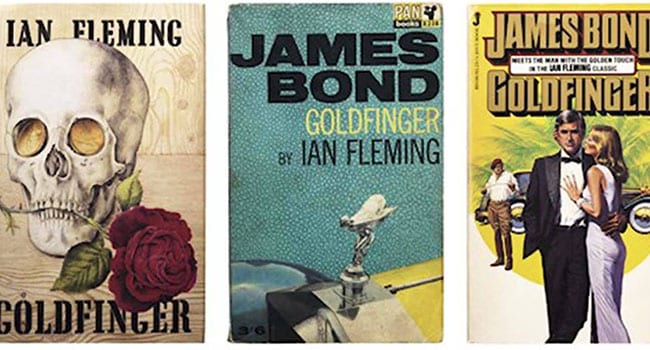 Apart from childhood forays into the likes of Robert Louis Stevenson and Sir Walter Scott, most of my fiction reading was done in the 1960s and 1970s. And the ubiquity of reasonably-priced paperback novels was a huge facilitator.
Apart from childhood forays into the likes of Robert Louis Stevenson and Sir Walter Scott, most of my fiction reading was done in the 1960s and 1970s. And the ubiquity of reasonably-priced paperback novels was a huge facilitator.
A goodly portion of what I consumed can be described as respectable. Somerset Maugham, John O’Hara and Allen Drury come to mind.
Of course, some people may question Drury. But he did win a Pulitzer Prize for Advise and Consent, so I think that settles that.
I must confess, however, that much of what I enjoyed can be categorized as trash. Glorious, page-turning trash. The sort of thing you couldn’t put down.
Ian Fleming was an early favourite. Between 1963 and 1964, I read at least a half-dozen of his James Bond novels. Maybe more.
Fleming’s current reputation – he placed 14th on a Times 2008 ranking of Britain’s best post-Second World War writers – might prompt a question as to why he’d qualify as trashy. But he wasn’t always so highly esteemed.
In the late 1950s, his work became controversial and some commentators were, to put it mildly, ungenerous. The New Statesman’s review of Dr. No was probably the most scathing. Under the heading “Sex, Snobbery and Sadism,” Paul Johnson described it as “the nastiest book I have ever read.”
Two things happened to turbocharge Fleming’s popularity in the early 1960s.
One factor was the 1961 endorsement from new U.S. President John F. Kennedy; From Russia With Love was listed by Life magazine as one of his favourite books. And the other development was the movie series beginning with Dr. No.
Interestingly, Fleming was instrumental in my only first-hand brush with the vagaries of Irish literary censorship, circa 1964.
Most of the Bond novels were openly sold in Dublin but there was an exception. And returning from a summer working sojourn in London, I had that particular book confiscated by customs because it was on their prohibited literature list.
Ostensibly, it was regarded as a dirty book. But as it had no more sex than the ones I’d bought in Dublin, its banning was a mystery to me.
If Fleming’s trashiness was a matter of dispute, there was no such ambivalence about Harold Robbins.
None of his output was available in Dublin, which didn’t mean we hadn’t heard of him. Word had it that The Carpetbaggers was the real deal. So, naturally, I picked it up shortly after arriving in London that summer.
My recollection is that the book was very long. It was also compulsive reading. In addition to the raciness liberally sprinkled through the pages, it had a narrative arc that hooked you in.
Indeed, The Carpetbaggers was probably my first conscious introduction to the roman a clef, the technique of basing a story on real people and events while using fictitious names.
The protagonist, Jonas Cord, is based on Howard Hughes, the tycoon, movie producer, aviator and all-round eccentric. Other characters have similarities with early 20th-century film stars Jean Harlow and Tom Mix.
Robbins was enormously successful, particularly in the 1960s. Reputedly, some 750 million copies of his books were sold in more than 30 languages.
Meanwhile, his personal life was the stuff of drama, self-invention and excess. After burning through millions of dollars in pursuit of lavish living, sex, champagne and cocaine, he was virtually penniless when he died in 1997.
Sidney Sheldon was another author who, like Robbins, could keep you turning the pages.
Sheldon also had quite a distinguished popular entertainment pedigree. He started writing for the movies before moving on to television, even winning a screenplay Oscar in 1948.
Novels came relatively late in life, his first being published in his early 50s. However, they quickly morphed into his favourite medium. Unlike movies, which were essentially collaborative and thus subject to second-guessing by others, a novelist could do his own thing.
Sheldon and Robbins shared significant writing traits. Their stories were pacey, and replete with nefarious dealings, treachery, passion and lust. You wouldn’t nod off reading them.
In contrast to Robbins, though, many of Sheldon’s central characters were strong, capable women. They weren’t always noble or benign but they were consequential.
So do I regret the time spent on trashy novels all those years ago?
Not a bit.
They were great fun.
Troy Media columnist Pat Murphy casts a history buff’s eye at the goings-on in our world. Never cynical – well perhaps a little bit.
The views, opinions and positions expressed by columnists and contributors are the author’s alone. They do not inherently or expressly reflect the views, opinions and/or positions of our publication.


